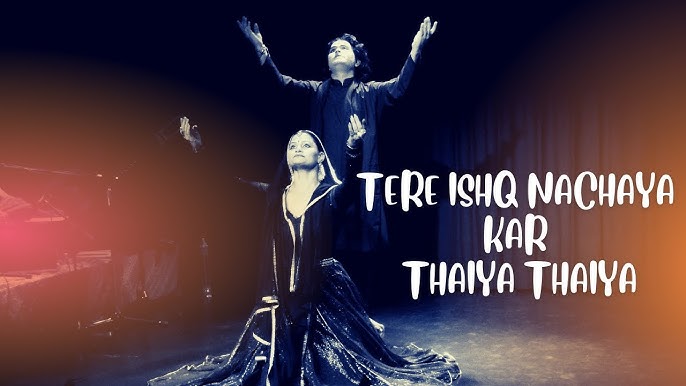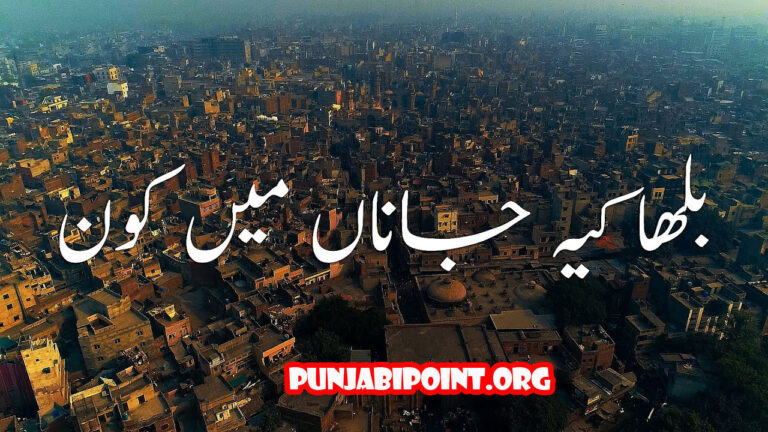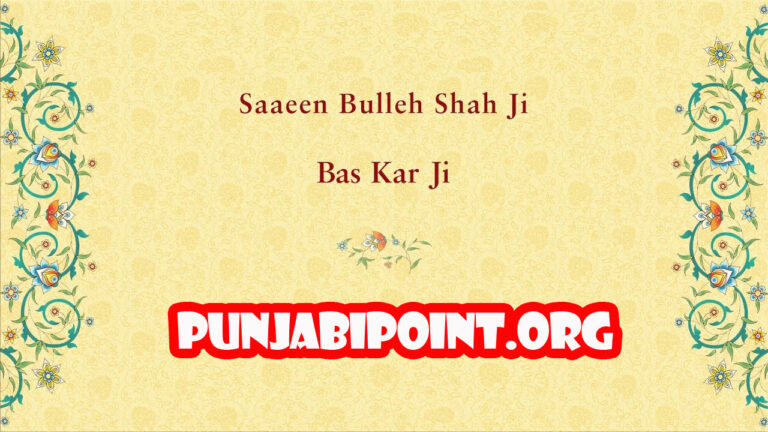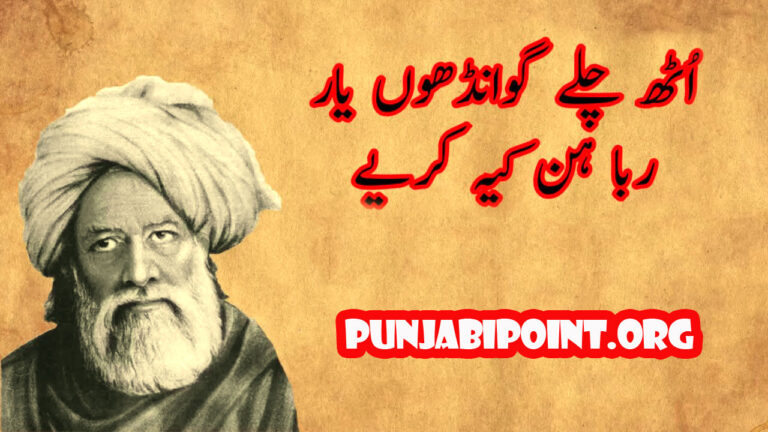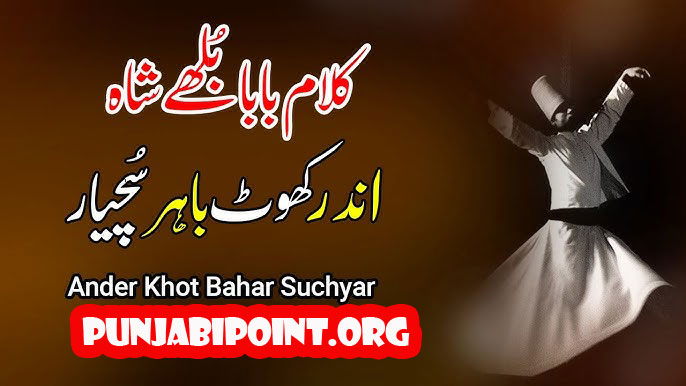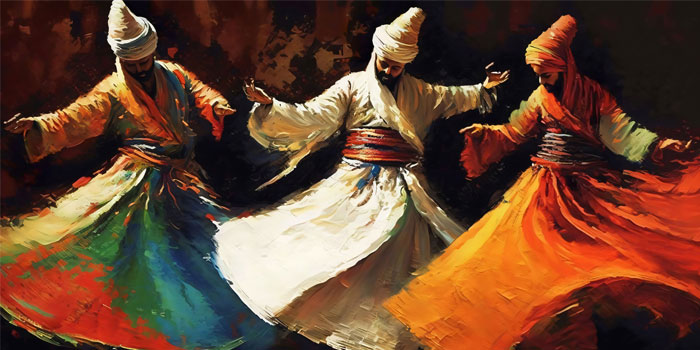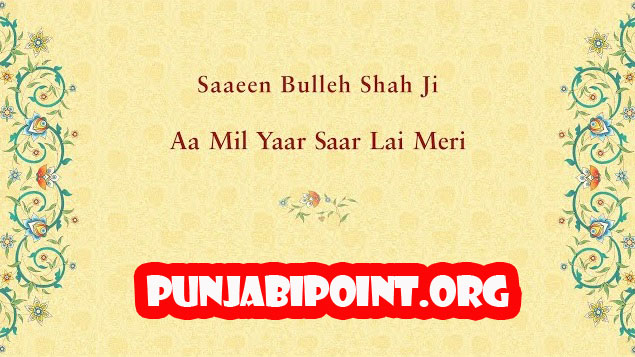Tere Ishq nachaiyaan kar key thaiyaa thaiyaa


Bhar ke zeher payala main taan aape peeta,
Jhalde wahudi tabiba nahin te main mar gaiyaan
Tere Ishq nachaiyaan kar key thaiyaa thaiyaa
Was like taking a sip of poison
Come my healer, forsaken, I am sad.
Your love has made me dance like mad
–
Chupp giyah ve suraj bahar reh gayi laali
Ve main sadqey hova, Devein murrjey wikhali
Peera main bhul gaiyaan tere naal na gaiyaan
Tere Ishq nachaiyaan kar key thaiyaa thaiyaa
I’ll give my life for a glimpse of you
My fault I came not when when you bade
Your love has made me dance like mad.
Laahu jaandre berrey kehrramorlaya
Meri aqal jun bhulli naal mhaniyaan dey gaiyaan
Tere Ishq nachaiyaan kar key thaiyaa thaiyaa
Who can hold the boats on the move?
Stupid, I joined the boatman’s squad
Your love has made me dance like mad
–
Ais Ishq Di Jhangi Wich Mor Bulenda
Sanu Qibla Te Qaaba Sohna Yaar Disenda
Saanu Ghayal Karke Pher Khabar Na Laaiyaan
Tere Ishq nachaiyaan kar key thaiyaa thaiyaa
It’s Qibla, It’s Kaaba where lives my love
You asked not once after you stabbed
Your love has made me dance like mad
–
Bullah Shah na aounda mainu Inayat de buhe
Jisne mainu awaye choley saave te suhe
Jaan main maari aye addi mil paya hai vahaiya
Tere Ishq nachaiyaan kar key thaiyaa thaiyaa
Who has dressed me in green and red
And caught me the instant I flew from the pad
Your love has made me dance like mad
Ecstasy of Divine Love: The Dance of Bulleh Shah’s Devotion
This poem, attributed to the Sufi poet Bulleh Shah, is a mystical expression of love and devotion. The verses describe the overwhelming, transformative power of love, likening it to a force that drives the speaker to madness, making them dance in ecstasy. The poet metaphorically compares falling in love to drinking poison and being wounded without care, but also speaks of spiritual longing, comparing the beloved to a healer whose presence is deeply craved.
Each stanza elaborates on the depth of the poet’s emotional and spiritual connection to the beloved, who is both a symbol of earthly love and divine union. The imagery of sunsets, boats, and the call of a peacock in the “grove of passion” evokes the journey of love as both beautiful and painful. Ultimately, this love brings the poet to a higher state of consciousness, where the beloved, representing God or truth, has made an indelible impact on the soul.
The recurring line, “Tere Ishq nachaiyaan kar key thaiyaa thaiyaa” (Your love has made me dance like mad), emphasizes the uncontrollable, ecstatic surrender to love and the transformative power it holds.
Baba Bulleh Shah
Baba Bulleh Shah (1680–1757) was a renowned Punjabi Sufi poet, humanist, and philosopher whose works deeply resonate with themes of spiritual awakening, love, and unity. Born in Uch, Punjab (now Pakistan), he belonged to the Qadiri Sufi order and was a disciple of the famous Sufi saint Shah Inayat Qadiri. Bulleh Shah’s poetry, often written in the form of kafis (short poems), reflects his quest for divine truth and love, transcending religious, social, and cultural boundaries.
His verses often challenge orthodoxy, ritualism, and rigid societal norms, emphasizing inner purity and the oneness of humanity. Bulleh Shah spoke against divisions based on caste, religion, and sect, advocating for love as the path to spiritual enlightenment. His poetry also contains expressions of longing, separation, and union with the divine, symbolizing his personal journey of spiritual transformation.
Bulleh Shah’s simple yet profound message of love and unity continues to inspire people today, making him one of the most cherished and celebrated figures in South Asian Sufi literature. His timeless poetry has been sung by folk and contemporary musicians, keeping his legacy alive in popular culture.
